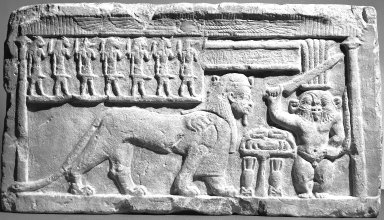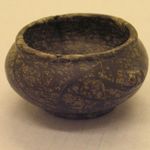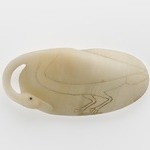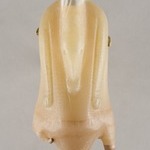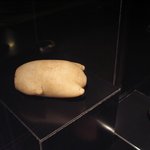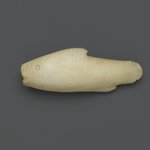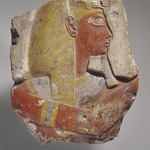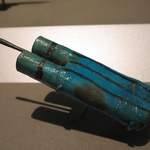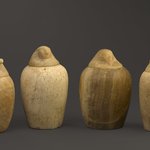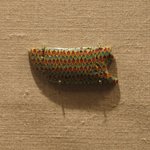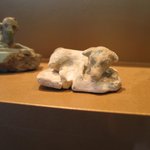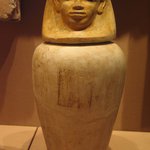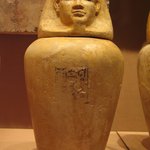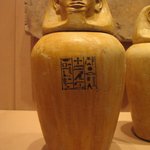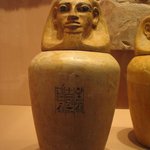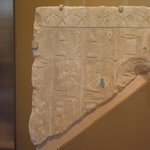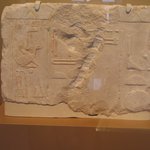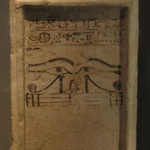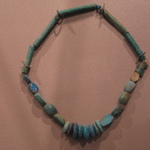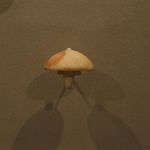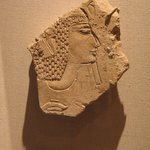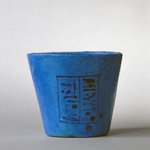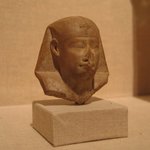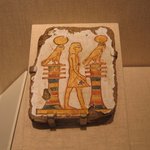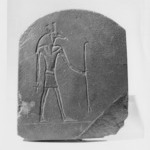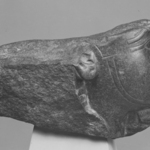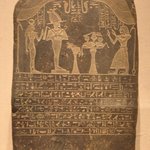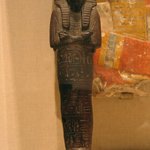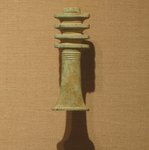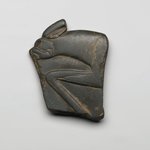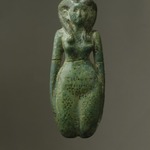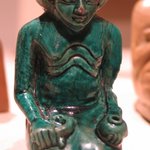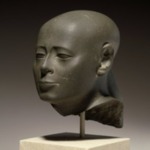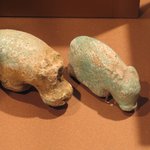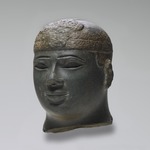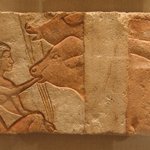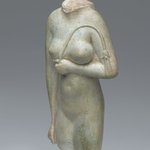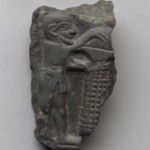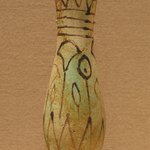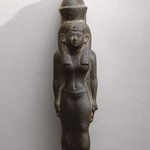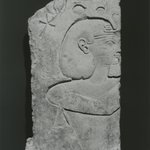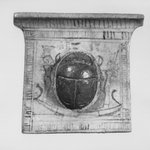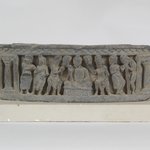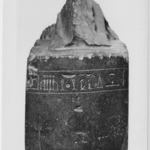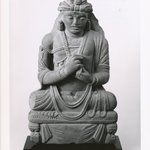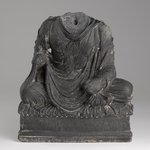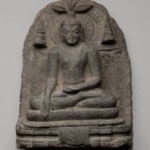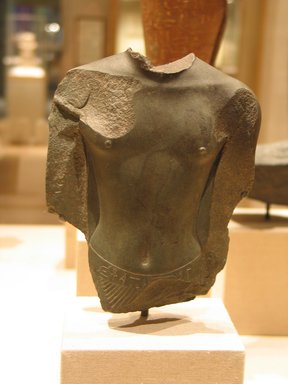
Torso of a Saite King
Egyptian, Classical, Ancient Near Eastern Art
On View: 19th Dynasty to Roman Period, Martha A. and Robert S. Rubin Gallery, 3rd Floor
The idealized modeling of this torso harks back to royal sculpture of Dynasty IV (circa 2600–2475 B.C.). Art historians use the term "archaism" to describe such a conscious evocation of earlier models in art. Archaism played a dominant role in the creative achievements of the Twenty-sixth Dynasty, perhaps in an effort to legitimize royal claims by linking the dynasty to Egypt's glorious past.
MEDIUM
Schist
DATES
ca. 664–570 B.C.E.
DYNASTY
Dynasty 26
PERIOD
Late Period
DIMENSIONS
6 1/16 x 4 13/16 x 1 9/16 in. (15.4 x 12.2 x 4 cm) (show scale)



COLLECTIONS
Egyptian, Classical, Ancient Near Eastern Art
ACCESSION NUMBER
58.95
CREDIT LINE
Charles Edwin Wilbour Fund
CATALOGUE DESCRIPTION
Torso from a standing statuette of a king in dark green hard stone. Preserved portion includes only from base of neck to below belt and only front half of this part. Inscribed on belt but cartouche is broken. Of Psamtik I. Exceptional workmanship. Belt inscribed with ntr nfr, mr Imn-r'.
Condition: Very incomplete. Arms, upper right breast shattered.
EXHIBITIONS
MUSEUM LOCATION
This item is on view on the 19th Dynasty to Roman Period, Martha A. and Robert S. Rubin Gallery, 3rd Floor
CAPTION
Torso of a Saite King, ca. 664–570 B.C.E. Schist, 6 1/16 x 4 13/16 x 1 9/16 in. (15.4 x 12.2 x 4 cm). Brooklyn Museum, Charles Edwin Wilbour Fund, 58.95. Creative Commons-BY (Photo: Brooklyn Museum, CUR.58.95_wwg8.jpg)
IMAGE
installation, West Wing gallery 8 installation, CUR.58.95_wwg8.jpg. Brooklyn Museum photograph, 2006
"CUR" at the beginning of an image file name means that the image was created by a curatorial staff member. These study images may be digital point-and-shoot photographs, when we don\'t yet have high-quality studio photography, or they may be scans of older negatives, slides, or photographic prints, providing historical documentation of the object.
RIGHTS STATEMENT
Creative Commons-BY
You may download and use Brooklyn Museum images of this three-dimensional work in accordance with a Creative Commons license. Fair use, as understood under the United States Copyright Act, may also apply.
Please include caption information from this page and credit the Brooklyn Museum. If you need a high resolution file, please fill out our online application form (charges apply).
For further information about copyright, we recommend resources at the United States Library of Congress, Cornell University, Copyright and Cultural Institutions: Guidelines for U.S. Libraries, Archives, and Museums, and Copyright Watch.
For more information about the Museum's rights project, including how rights types are assigned, please see our blog posts on copyright.
If you have any information regarding this work and rights to it, please contact copyright@brooklynmuseum.org.
RECORD COMPLETENESS
Not every record you will find here is complete. More information is available for some works than for others, and some entries have been updated more recently. Records are frequently reviewed and revised, and we welcome any additional information you might have.
